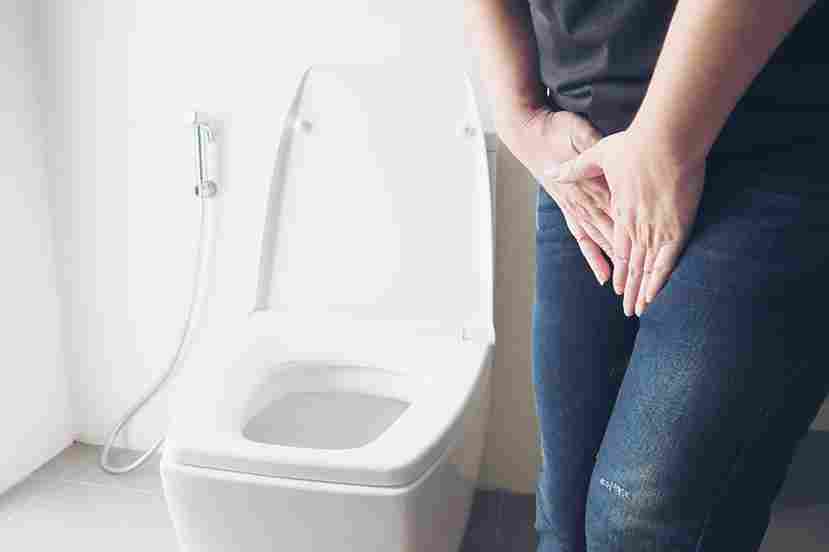


Are you noticing a burning sensation and pain after emptying bladder while pregnant? If yes, then it is a cause for concern. Consult your doctor to manage it effectively. Read this blog to learn about painful urination during pregnancy, including causes and ways to manage it.
Welcome to the new and exciting beginning of your life! Pregnancy is an overwhelming experience for every woman in the world. The journey from womanhood to motherhood comes with countless emotions, immense joy, and physical and mental changes.

During pregnancy, it is very common to urinate frequently as it is an early sign of pregnancy, but feeling a burning sensation can be an alarming situation that needs medical attention.
In medical terms, painful urination is known as dysuria, which leads to pain or burning sensation during urination. A person, irrespective of their gender, can experience this uncomfortable condition; however, it is more common in women, especially during pregnancy.
This discomfort can be caused by various factors such as infections, hormonal changes, pressure on the bladder from the growing uterus, and other pregnancy-related changes.
Dysuria can lead to a burning, stinging, or itching sensation along with abdominal pain when urinating during pregnancy. In women, pain after emptying bladder while pregnant can be internal or external. Internal pain can be a symptom of a urinary tract infection, and external pain, which is pain outside the vaginal area, may be caused by inflammation and irritation.
Pain after emptying bladder while pregnant can be caused by several factors related to the changes that occur in the woman’s body. The following are the conditions that can cause painful urination during pregnancy:

A urinary tract infection is an infection of the urinary system and is one of the main reasons for painful urination during pregnancy. Because of hormonal changes and pressure on the bladder due to a growing uterus, women can become more vulnerable to these types of infections.
Urinary tract infections mostly occur when bacteria enter the urinary tract and then multiply, causing irritation and inflammation.
There are different types of UTIs depending on the location in the urinary tract, which are discussed below:
It is one of the most common forms of UTI found in women. Cystitis is an inflammation of the bladder caused by a bladder infection and shows symptoms like frequent urination and cloudy and bloody urine.
This severe form of urinary tract infection occurs when infection from the bladder reaches the kidney and, as a result, damages one or both kidneys. This can cause severe back pain, nausea, vomiting, and fatigue.
Urethritis is an infection of the urethra that can be caused by both bacterial and viral infections. In this condition, a person experiences a burning sensation while urinating.
It is most commonly found among pregnant women and does not show any noticeable symptoms. In this UTI, bacteria can be present in the urinary tract and cause no symptoms; that’s why it is said to be asymptomatic bacteriuria.

After UTIs, another cause that leads to painful urination during pregnancy can be hormonal changes. During pregnancy, a woman’s body experiences several hormonal fluctuations that can affect the lining of the urinary tract and make it prone to irritation. Because of this, even minor irritation can lead to painful sessions of urination.

During pregnancy, women should increase their fluid intake, as it supports both their bodies and the developing baby in the womb. That’s why proper hydration is crucial to maintaining the health of the urinary tract, as dehydration can lead to pain after emptying the bladder while pregnant.
It is very important to consult your healthcare provider if you’re facing any symptoms or issues that cause discomfort when urinating, as it may lead to further complications.
Treatment options for dysuria depend on the cause of the pain or discomfort during urination. If it is a result of a urinary tract infection, then you will be advised to take antibiotics that are safe for use during pregnancy.
By following the medication provided by your healthcare provider, you can clear your infections completely. Before taking any type of medication during pregnancy, consult your doctor and resolve your queries.
By following some preventive measures, you can reduce the risk of UTIs and protect yourself from infections.

These are some treatment and preventive measures that can help lessen the risk of urinary tract infections, painful urination during pregnancy, and abdominal pain when urinating during pregnancy.
The exciting and adventurous journey from womanhood to motherhood is full of emotions and physical and emotional changes. One of the changes women experience is painful urination or dysuria. Under this condition, a person experiences discomfort or pain while urinating.
Various factors can lead to painful episodes, such as urinary tract infections, dehydration, vaginal changes, bladder pressure, and other changes related to pregnancy.
It can be a concerning situation, but there is nothing to worry about as it can be easily managed with the right medications and treatment. By following some preventive measures such as staying hydrated, maintaining proper hygiene, prioritising rest, and avoiding situations that can lead to bacteria production, you can eliminate painful urination during pregnancy.
Contact your doctor to determine the appropriate treatment based on your condition to alleviate the discomfort and ensure the health of both you and your baby.